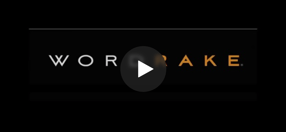Writing Is The Most Important Thing We Do Every Day
Every time you try to communicate in writing, you step onto the high wire, risking your reputation. It’s the most important thing you do every day, yet think of the irony: I send a manuscript to my publisher in New York, and two editors analyze every word; you have no one to look at your writing before you send it out for others to read.
Many of you have asked how I came up with the idea for software that would help anyone write more clearly and concisely. Here’s the story:
While teaching lawyers and other professionals how to improve their writing, I had discovered I could spot dull and unnecessary words by looking for certain “signs,” like “of” and “in”:
Employees typically stayed in Georgia during the pendency of their rotation.
The requested information included, in part, all bank statements.
I wondered: Could I use these signs to teach a machine? Could I give you a button:
MAKE ME A BETTER WRITER
To create millions of edits, I analyzed the finest writing from professional writers with professional editors in Pulitzer Prize-winning novels and magazines like Esquire, Vanity Fair, and National Geographic. If dull and unnecessary words could find their way through that maze of professional writing and editing, we all needed help.
In the spring of 2003, I filed for a patent on a finite set of these signs, which the U. S. Patent & Trademark Office granted on Christmas Day, 2007. Since then, WordRake has received ten more patents for editing methods that improve the kinds of sentences you write every day.
Working with a talented team of former Microsoft engineers, I turned the patents into software. Now, all you have to do is compose in Microsoft Word, open the WordRake ribbon, select the text you want to edit, then push that magic button – we call it the “rake” button – and accept the edits you like:
A lot of the time Often what happens is that the little impulse that gets me started on a story leads to something that is more interesting.
Over 1500 law firms, companies, universities, and government agencies now use WordRake software, including the AMLAW100 firm Ogletree Deakins, the City of Seattle, California State University, and Chicago’s elite intellectual property firm, Marshall, Gerstein & Borun. A technology expert speaking at this year’s ABA TechShow in Chicago told his audience that WordRake is, “One of the most exciting technologies to come to the legal world in years.”
After teaching writing to professionals for 25 years, I am convinced they all want an editor to take a second look. But here’s the problem: humans aren’t available; and software would have to be easy to install, fast, accurate, reliable, and cost-effective. Until a year and a half ago, that software did not exist. It does now. So I propose you resolve to do two things in the New Year:
If you don’t already, subscribe to WordRake’s Weekly Writing Tips. I write every Tip, and the subscription is free.
Subscribe to WordRake. We created it with you in mind.
We designed it to streamline your writing process: no suggestion windows, no tutorials, no tables, no charts, no “writing grade,” no “readability index.” Just discreet, impartial, 90%-accurate, fast editing – 10 pages, an average of 100 edits, in about 30 seconds.




